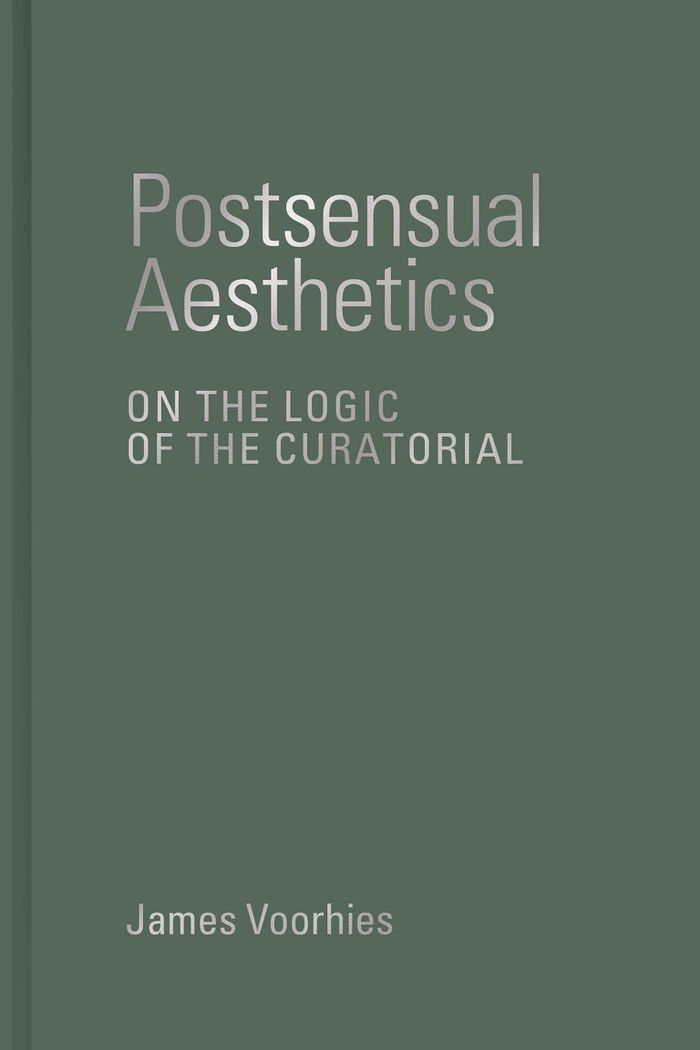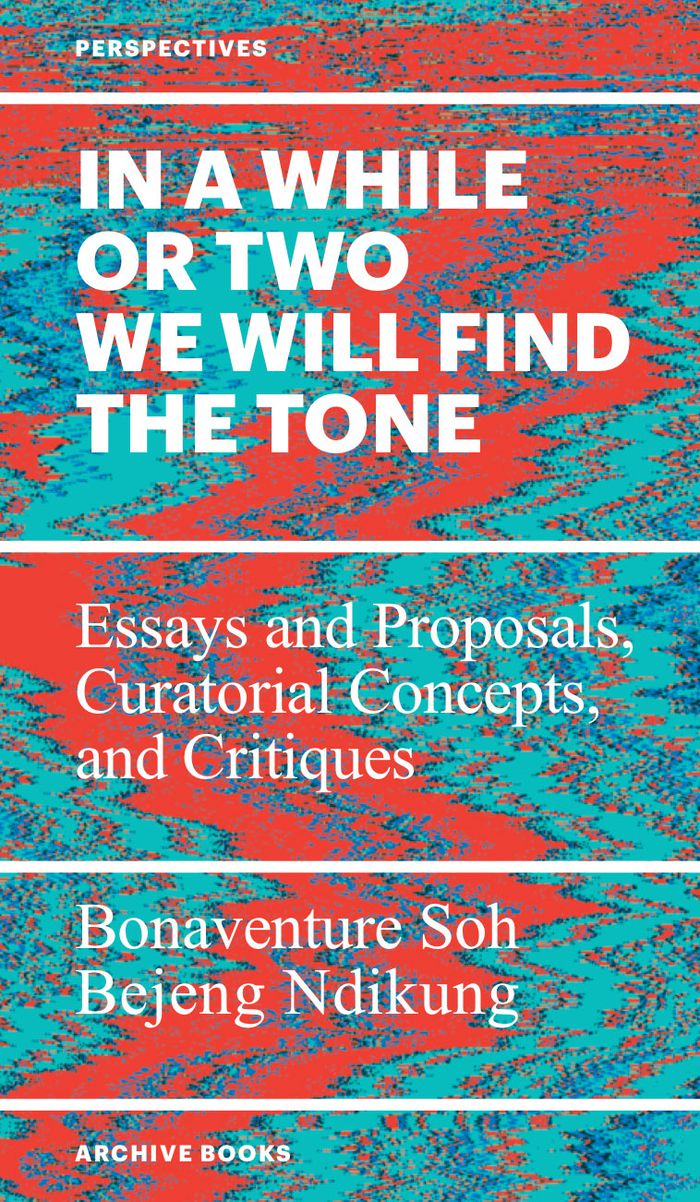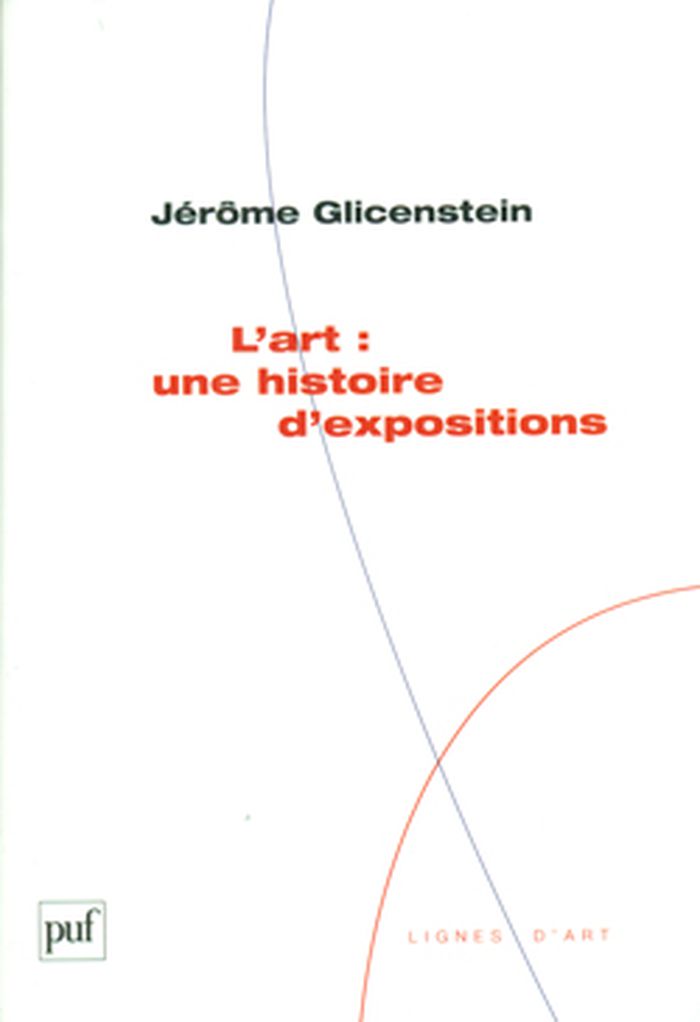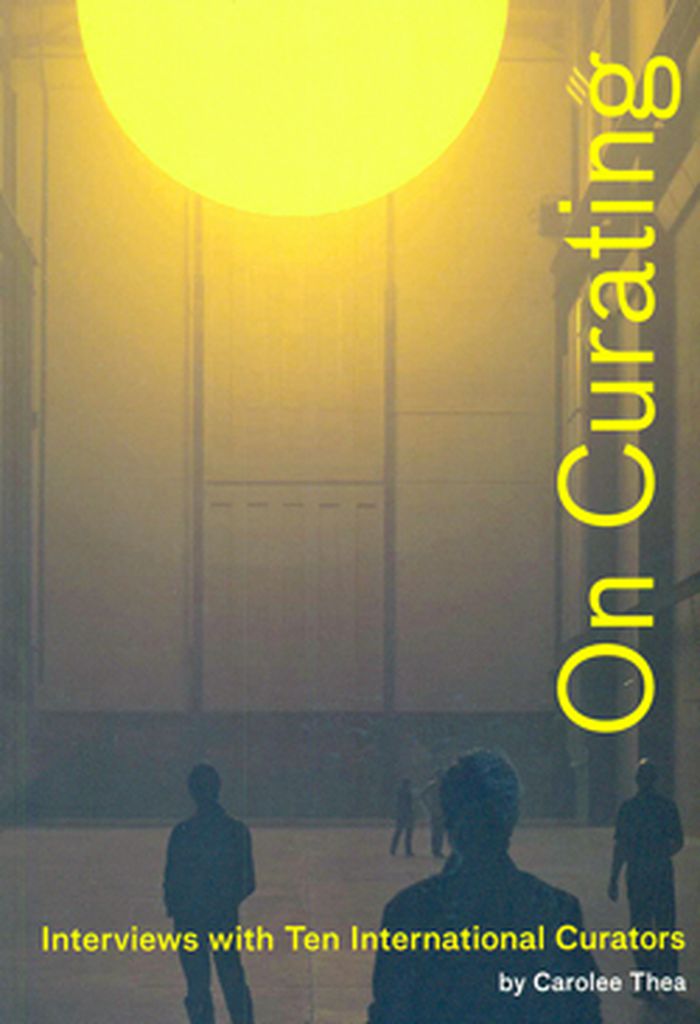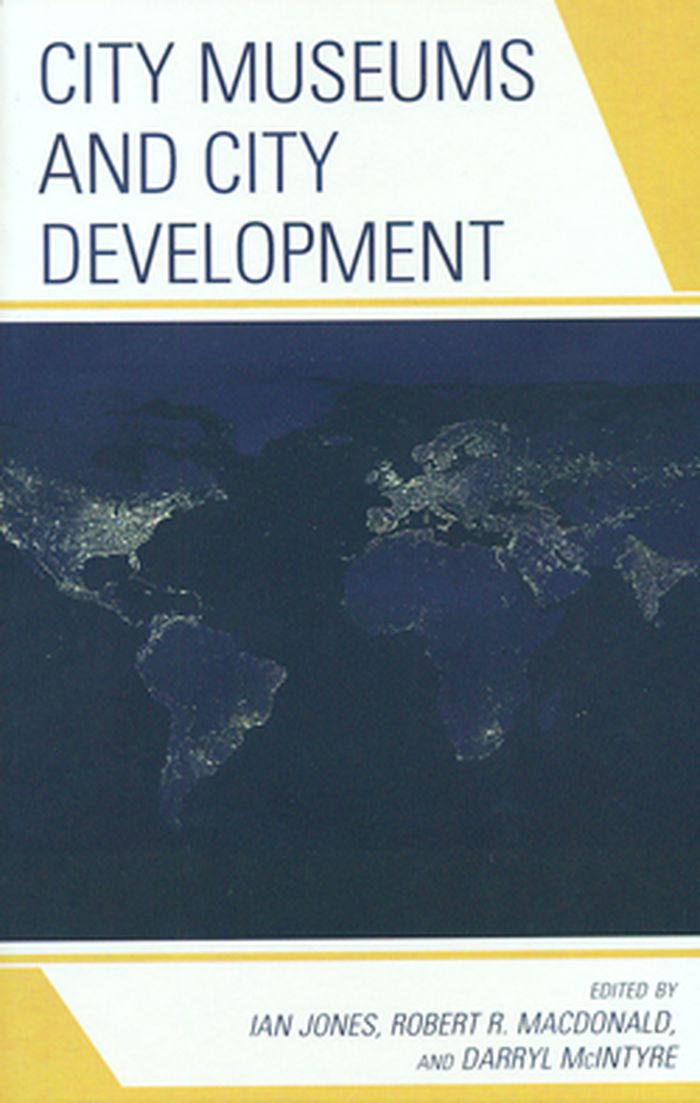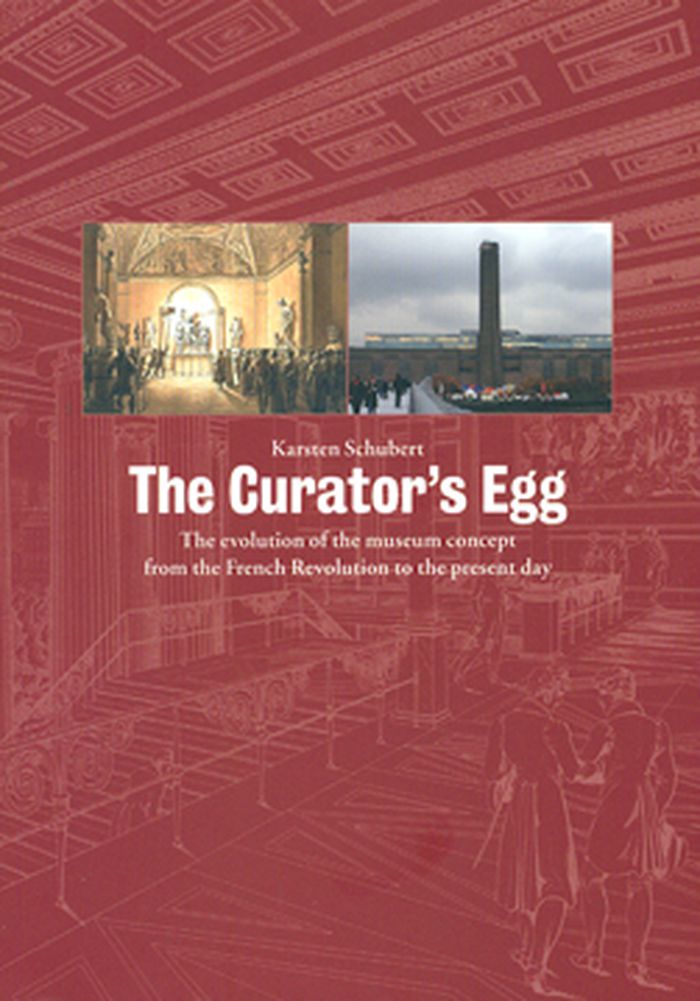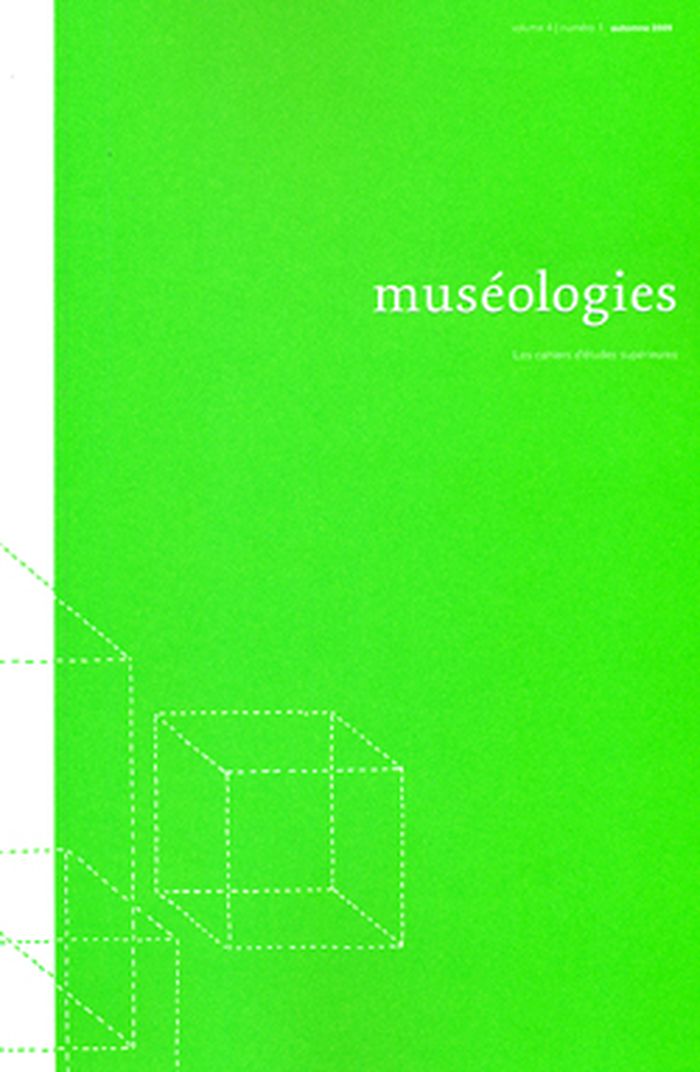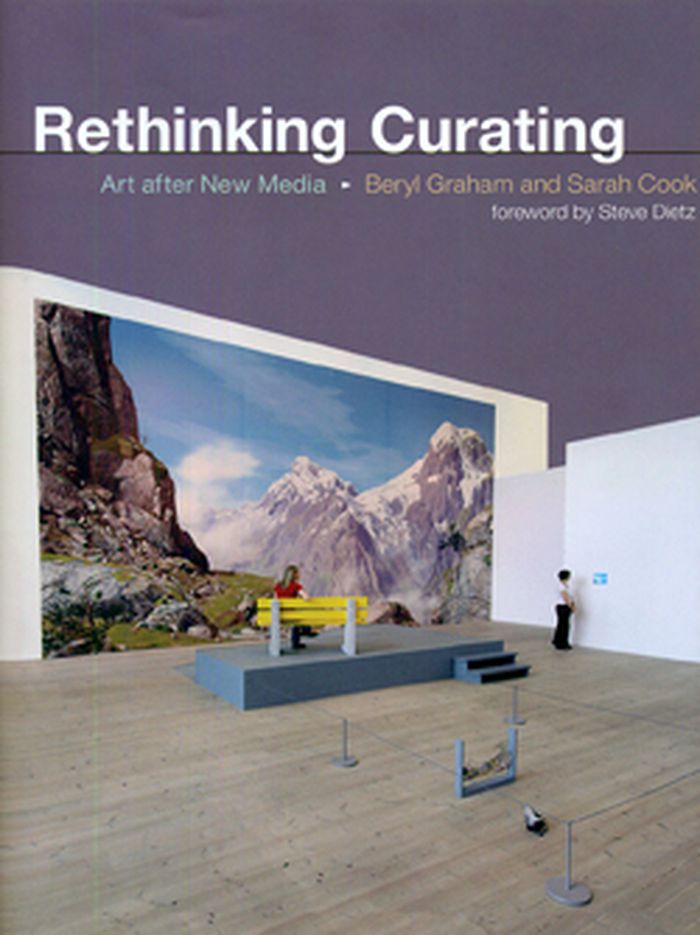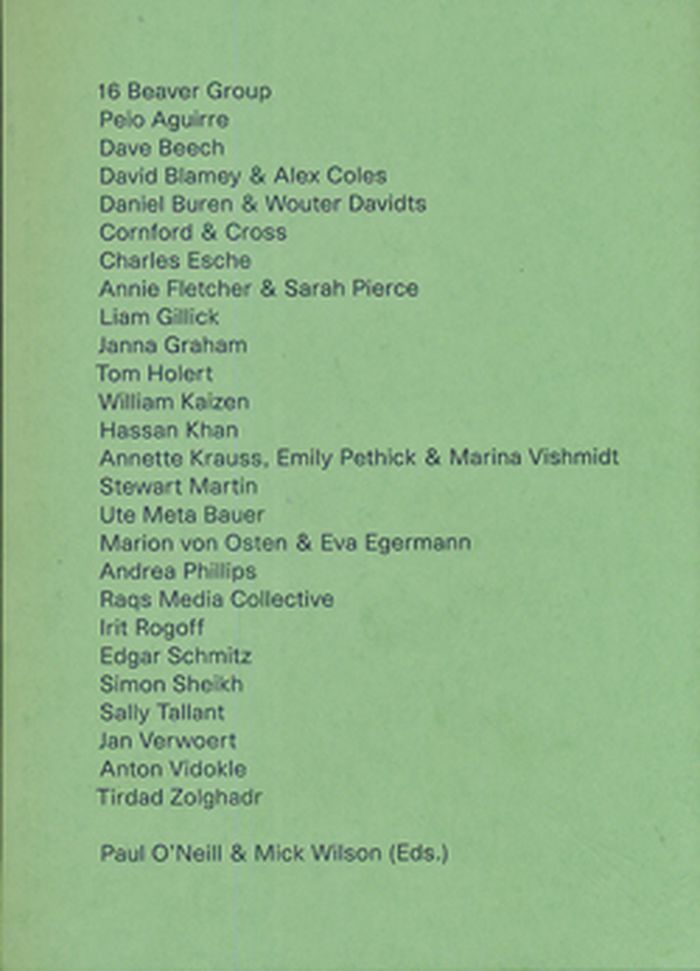$33.95
(disponible sur commande)
Résumé:
In this work of aesthetic theory, James Voorhies argues that we live in the shadow of old ways of thinking about art that emphasize the immediate visual experience of an autonomous art object. But theory must change as artistic and curatorial production has changed. It should encompass the full range of activities through which we encounter art and exhibitions, in which(...)
Postsensual aesthetics: on the logic of the curatorial
Actions:
Prix:
$33.95
(disponible sur commande)
Résumé:
In this work of aesthetic theory, James Voorhies argues that we live in the shadow of old ways of thinking about art that emphasize the immediate visual experience of an autonomous art object. But theory must change as artistic and curatorial production has changed. It should encompass the full range of activities through which we encounter art and exhibitions, in which reading and thinking are central to the aesthetic experience. Voorhies advances the theoretical framework of a “postsensual aesthetics,” which does not mean we are beyond a sensual engagement with objects, but rather embraces the cognitive connections with ideas that unite art and knowledge production. Cognitive engagements with art often begin with publications conceived as integral to exhibitions, conveying the knowledge and research artists and curators produce, and continuing in time and space beyond traditional curatorial frames. The idea, and not just visual immediacy, is now art's defining moment.
Muséologie
In a while or two we will find the tone: Essays and proposals, curatorial concepts, and critiques
$35.00
(disponible sur commande)
Résumé:
This collection of writings from Bonaventure Soh Bejeng Ndikung presents, for the first time in one volume, essays and proposals edited anew. Ndikung's expanded curatorial practice delineates the space of exhibition making as a space of critical thinking and of experimentation. By proximity, these texts echo each other, resonate with each other, interfere with each other,(...)
In a while or two we will find the tone: Essays and proposals, curatorial concepts, and critiques
Actions:
Prix:
$35.00
(disponible sur commande)
Résumé:
This collection of writings from Bonaventure Soh Bejeng Ndikung presents, for the first time in one volume, essays and proposals edited anew. Ndikung's expanded curatorial practice delineates the space of exhibition making as a space of critical thinking and of experimentation. By proximity, these texts echo each other, resonate with each other, interfere with each other, and present perspectives on the political, poetic, and philosophical potentials of exhibition making, beyond the tight corset of the discipline itself.
Muséologie
$44.95
(disponible sur commande)
Résumé:
Le discours sur l'art traite généralement d'œuvres, d'artistes ou de création mais délaisse un aspect essentiel de la relation esthétique : l'exposition. De fait, la question est complexe : comment aborder conjointement des éléments aussi hétérogènes que les relations entre objets, les relations de ces objets à des lieux ou à des publics ou encore les relations internes(...)
Muséologie
mai 2009
L'art: une histoire d'expositions
Actions:
Prix:
$44.95
(disponible sur commande)
Résumé:
Le discours sur l'art traite généralement d'œuvres, d'artistes ou de création mais délaisse un aspect essentiel de la relation esthétique : l'exposition. De fait, la question est complexe : comment aborder conjointement des éléments aussi hétérogènes que les relations entre objets, les relations de ces objets à des lieux ou à des publics ou encore les relations internes au monde de l'art qu'ils sous-tendent ? Une partie de la difficulté tient aux compréhensions contradictoires impliquées par l'exposition ; car exposer c'est à la fois produire une énonciation (un exposé) et découvrir, mettre à nu, mettre en danger. A la fois révéler - en un sens quasi photographique - et dévoiler : dénoncer et donner en exemple - rabaisser et élever. Bien que la question de l'art et de son appréciation ne se réduise évidemment pas à un ensemble de dispositifs de présentation, à des textes d'accompagnement ou de critique, à des choix de commissaires, il n'en demeure pas moins que la prise en compte des procédures d'exposition éclaire singulièrement la place de l'art dans notre monde. Des explications sur les circonstances entourant la création d'une œuvre - de même que la façon dont ces circonstances sont connues et divulguées - enrichissent sa connaissance et en modifient le sens et l'approche. De même, une réflexion sur les publics, la scénographie, l'architecture, les commentaires, les textes de présentation, permet de voir en quoi les différentes médiations orientent et réorientent en permanence le jugement sur les œuvres et notre compréhension de l'art.
Muséologie
$29.95
(disponible sur commande)
Résumé:
Carolee Thea explores the intellectual convictions and personal visions that lay the groundwork for the most prestigious and influential exhibitions in the world today. Among the aesthetic and theoretical issues raised are the relationship between artist and curator, globalism, post-colonialism, capitalism, the future of cultural tourism and the biennial as spectacle or(...)
On curating: interviews with ten international curators
Actions:
Prix:
$29.95
(disponible sur commande)
Résumé:
Carolee Thea explores the intellectual convictions and personal visions that lay the groundwork for the most prestigious and influential exhibitions in the world today. Among the aesthetic and theoretical issues raised are the relationship between artist and curator, globalism, post-colonialism, capitalism, the future of cultural tourism and the biennial as spectacle or utopian ideal. Thea's interviewees are Joseph Backstein, Carolyn Christov-Bakargiev, Okwui Enwezor, Charles Esche, Massimiliano Gioni, RoseLee Goldberg, Mary Jane Jacob, Pi Li, Virginia Perez-Ratton and Rirkrit Tiravanija.
livres
$33.95
(disponible sur commande)
Résumé:
In today's busy world, museums compete for visitors not only with other museums, but also with a worthy selection of cultural institutions from performing arts to libraries. Branding a museum helps it stand out from the crowd by giving it an image and personality with which visitors and supporters can identify. In Museum Branding, Wallace offers clear, practical advice on(...)
Museum branding; how to create and maintain image, loyalty, and support
Actions:
Prix:
$33.95
(disponible sur commande)
Résumé:
In today's busy world, museums compete for visitors not only with other museums, but also with a worthy selection of cultural institutions from performing arts to libraries. Branding a museum helps it stand out from the crowd by giving it an image and personality with which visitors and supporters can identify. In Museum Branding, Wallace offers clear, practical advice on how to brand a museum department by department, step by step.
livres
août 2006
Muséologie
$84.95
(disponible sur commande)
Résumé:
Traditionally, city museums have been keepers of city history. Many have been exercises in nostalgia, reflecting city pride. However, a new generation of museums focuses increasingly on the city's present and future as well as its past, and on the city in all of its diversity, challenges, and possibilities. Above all, these museums are gateways to understanding the(...)
City museums and city development
Actions:
Prix:
$84.95
(disponible sur commande)
Résumé:
Traditionally, city museums have been keepers of city history. Many have been exercises in nostalgia, reflecting city pride. However, a new generation of museums focuses increasingly on the city's present and future as well as its past, and on the city in all of its diversity, challenges, and possibilities. Above all, these museums are gateways to understanding the city--our greatest and most complex creation and the place where half the world's population now lives. In this book, experts in the field explore this 'new' city museum and the challenge of contributing positively to city development.
Muséologie
The curator's egg, the evolution of the museum concept from the french revolution to the present day
$42.50
(disponible sur commande)
Résumé:
This book traces the growth of the museum concept from the opening of the Louvre to the current popularity of buildings by 'starchitects'. Encompassing curatorial, scholarly, political and cultural spheres, author Karsten Schubert addresses the concept of the museum from a variety of influences. In Part I, Schubert looks at the complex history of the museum in specific(...)
The curator's egg, the evolution of the museum concept from the french revolution to the present day
Actions:
Prix:
$42.50
(disponible sur commande)
Résumé:
This book traces the growth of the museum concept from the opening of the Louvre to the current popularity of buildings by 'starchitects'. Encompassing curatorial, scholarly, political and cultural spheres, author Karsten Schubert addresses the concept of the museum from a variety of influences. In Part I, Schubert looks at the complex history of the museum in specific cities during critical moments, for instance New York between 1930-1950 as the Metropolitan Museum expanded and MoMA was founded.
Muséologie
$20.00
(disponible sur commande)
Résumé:
Muséologies, Les cahiers d’études supérieures, est la première publication universitaire en muséologie au Québec. Elle a pour mission la diffusion et la promotion des travaux issus des programmes supérieurs en muséologie afin d’assurer une meilleure visibilité à la recherche dans cette discipline.
Muséologies: les cahiers d'études supérieures, volume 4, automne 2009
Actions:
Prix:
$20.00
(disponible sur commande)
Résumé:
Muséologies, Les cahiers d’études supérieures, est la première publication universitaire en muséologie au Québec. Elle a pour mission la diffusion et la promotion des travaux issus des programmes supérieurs en muséologie afin d’assurer une meilleure visibilité à la recherche dans cette discipline.
$39.95
(disponible sur commande)
Résumé:
New media artworks are difficult to classify according to the traditional art museum categories determined by medium, geography, and chronology. These works present the curator with novel challenges involving interpretation, exhibition, and dissemination. This book views these challenges as opportunities to rethink curatorial practice. Rethinking Curating explores the(...)
Rethinking curating: art after new media
Actions:
Prix:
$39.95
(disponible sur commande)
Résumé:
New media artworks are difficult to classify according to the traditional art museum categories determined by medium, geography, and chronology. These works present the curator with novel challenges involving interpretation, exhibition, and dissemination. This book views these challenges as opportunities to rethink curatorial practice. Rethinking Curating explores the characteristics distinctive to new media art, including its immateriality and its questioning of time and space, and relates them to such contemporary art forms as video art, conceptual art, socially engaged art, and performance art.
$35.00
(disponible sur commande)
Résumé:
In recent years there has been increased debate on the incorporation of pedagogy into curatorial practice — on what has been termed "the educational turn" ("turn" in the sense of a paradigmatic reorientation, within the arts). In this new volume, artists, curators, critics and academics respond to this widely recognized turn in contemporary art. Consisting primarily of(...)
Curating and the educational turn
Actions:
Prix:
$35.00
(disponible sur commande)
Résumé:
In recent years there has been increased debate on the incorporation of pedagogy into curatorial practice — on what has been termed "the educational turn" ("turn" in the sense of a paradigmatic reorientation, within the arts). In this new volume, artists, curators, critics and academics respond to this widely recognized turn in contemporary art. Consisting primarily of newly commissioned texts, from interviews and position statements to performative text and dialogue, this book also includes a number of previously published writings that have proved primary in the debate so far. Contributors include David Aguirre, Dave Beech, Cornford & Cross, Charles Esche, Liam Gillick, Tom Holert and Emily Pethick.
Muséologie
